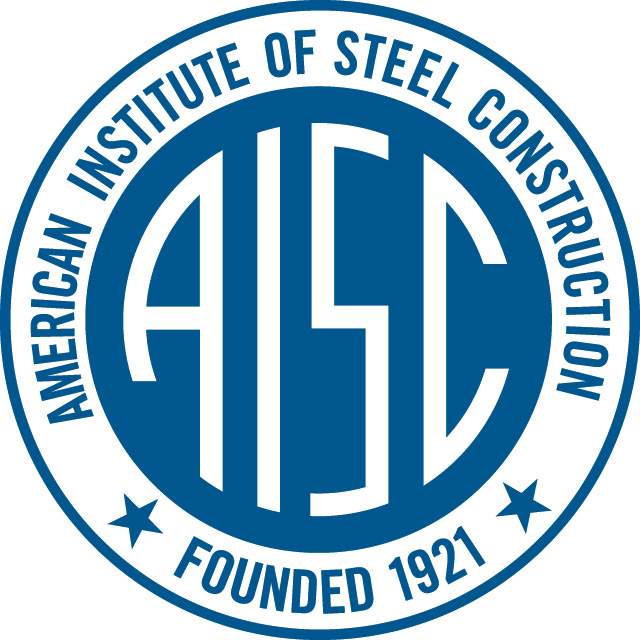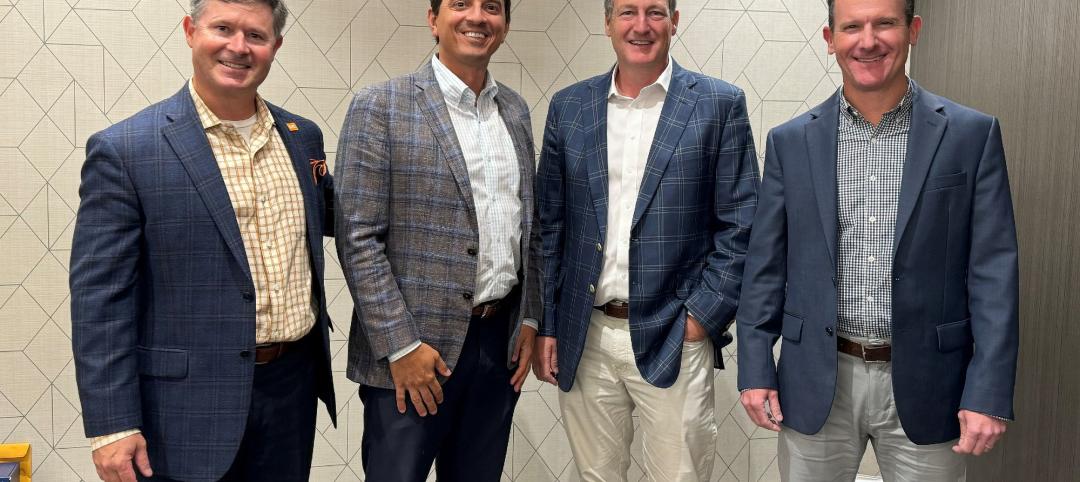For the second consecutive year, NASCC: The Steel Conference provides a glimpse into the future of technology in steel construction with the Technology in Steel Construction Conference (TSCC). This special track features nine informative sessions that focus on advanced technology use throughout the steel construction industry, from various topics on building information modeling (BIM) to interoperability.
TSCC sessions are part of the more than 100 top-notch educational sessions being offered at The Steel Conference in St. Louis, April 17-19 at America's Center Convention Complex. Admittance to all TSCC sessions is included with conference registration. To register or view an advance program, visit www.aisc.org/nascc.
Here's a look at this year's TSCC sessions for steel design and construction professionals:
T1: Leveraging Technology to Improve Project Communication (Wednesday, 3:15 p.m. — 4:15 p.m.) — How do you convey information clearly and succinctly and ensure it is understood by others? How do you know you are interpreting the information you receive correctly? This session, aimed at all roles within the structural steel industry, will discuss how to use the technology you already have, or have easily accessible, to improve communication within the project team and your own organization. Various technologies will be examined, from tools for building and reviewing BIM models and drawings, to web-based software designed to accommodate virtual meetings, to free tools to help you share files and stay mobile.
T2: IFC - Interoperability for Construction? A Practical Take for the Steel Industry (Wednesday, 4:30 p.m. — 6 p.m.) — IFC does not stand for Interoperability for Construction; but it could! It's actually an acronym for buildingSMART's Industry Foundation Classes, an industry-wide open standard that is gaining traction in the construction industry, as it offers a promise unmatched by previous standards: that a single standard can be used across various trades and professions in the industry. This session will explain why AISC adopted IFC at the core of its interoperability strategy and examine the nuances of IFC files, dispelling some myths and perceptions along the way. In addition, the session will take a look at the progress being made toward actual IFC exchanges in the structural steel industry.
T3: Risk and Model Hand-Offs (Thursday, 8 a.m. — 9:30 a.m.) — In this session, you'll learn how to address risk and model hand-offs and the challenges of working with design and construction models. The discussion will also consider the new AIA BIM Protocol Exhibit 202 that defines the Level of Detail (LOD) in models on a scale of 100 to 500. These LOD concepts will then be demonstrated with case studies on projects in three different phases: design, construction and facilities management (FM).
T4: Next Generation Approval: Using BIM for the Shop Drawing Review and Approval Process (Thursday, 10 a.m. — 11:30 a.m.) — BIM models hold tremendous potential, yet they are often underused beyond the visualization and coordination stages. This session will introduce you to three pioneering companies that are taking models to the next level by using them in the review process in concert with, or even in lieu of, traditional shop drawings. Speakers will discuss various methodologies and benefits they've experienced using model review.
T5: Bridging the Gap from Design to Fabrication (Thursday, 1:15 p.m. — 2:15 p.m.) — Do you still use traditional PDF drawings? You may be running the risk of inefficiencies and opportunities for mistakes. In the new and evolving world of BIM, more designers are creating 3D models that contain an immense amount of information that can be easily accessed by steel detailers, who have the opportunity to incorporate lean processes in their workflow -- benefiting the bottom line for the entire project team. In this session, you'll hear about the steel detailing challenges, successes and lessons learned from a major healthcare project related to the structural design model and project team coordination, and how to apply these to your own projects.
T6: The True Benefit of BIM for the Structural Engineer and the Pivotal Role They Play in the BIM Process (Thursday, 3 p.m. — 4 p.m.) — Do you typically use software packages for your own domain and find that it can sometimes be a bottleneck in the BIM process? Structural engineers and designers will often use their own BIM models for design, but, for most projects, the construction documents will be produced as drawings for the steel detailer/fabricator, who then interprets the drawings for building their own BIM models for fabrication purposes. This session will examine and discuss various topics related to improving workflow both within the structural engineering office and as it pertains to sharing models with steel detailers.
T7: What Does it Mean to Be a BIM Coordinator? (Thursday, 4:15 p.m. — 5:15 p.m.) — This session will delve into the role and requirements of a 3D/4D BIM coordinator and provide objectives from the perspectives of a steel detailer and general contractor. The purposes and goals of a BIM Contract will be reviewed, as well as the expectations of each project stakeholder. The session will also examine the different BIM platforms each party uses and the benefits of identifying discrepancies earlier in the design and detailing process.
T8: Steel Procurement in the 21st Century: Current Best Practices and Future Possibilities (Friday, 8 a.m. — 9:30 a.m.) — In today's brave new technological world, paper, faxes and basic spreadsheets still dominate the world of steel procurement. This session will offer practical ways to take advantage of the technology you already own, or have easily accessible, to improve the procurement process, which will be investigated in four primary areas: Inventory availability; Request for Quotation (RFQ); order placement; and order status/delivery. It will also discuss promising future initiatives and opportunities in this area.
T9: Laser Scanning and Steel Construction (Friday, 10 a.m. — 11:30 a.m.) — In this session you'll gain a solid foundation in using laser scanning for your projects, including how to budget and specify laser scanning work. The presentation will also provide practical examples of how laser scanning is adding value, accelerating schedules, and improving quality and safety for steel projects.
More information on this year's TSCC sessions at The Steel Conference can be found in the Advance Program (pages 29-31). For more information about the conference, visit www.aisc.org/nascc.
About the American Institute of Steel Construction
The American Institute of Steel Construction, headquartered in Chicago, is a not-for-profit technical institute and trade association established in 1921 to serve the structural steel design community and construction industry. AISC's mission is to make structural steel the material of choice by being the leader in structural steel-related technical and market-building activities, including: specification and code development, research, education, technical assistance, quality certification, standardization, and market development. AISC has a long tradition of service to the steel construction industry of providing timely and reliable information.
Related Stories
MFPRO+ News | Jun 3, 2024
New York’s office to residential conversion program draws interest from 64 owners
New York City’s Office Conversion Accelerator Program has been contacted by the owners of 64 commercial buildings interested in converting their properties to residential use.
MFPRO+ News | Jun 3, 2024
Seattle mayor wants to scale back energy code to spur more housing construction
Seattle’s mayor recently proposed that the city scale back a scheduled revamping of its building energy code to help boost housing production. The proposal would halt an update to the city’s multifamily and commercial building energy code that is scheduled to take effect later this year.
Mass Timber | May 31, 2024
Mass timber a big part of Western Washington University’s net-zero ambitions
Western Washington University, in Bellingham, Wash., 90 miles from Seattle, is in the process of expanding its ABET-accredited programs for electrical engineering, computer engineering and science, and energy science. As part of that process, the university is building Kaiser Borsari Hall, the 54,000-sf new home for those academic disciplines that will include teaching labs, research labs, classrooms, collaborative spaces, and administrative offices.
Construction Costs | May 31, 2024
Despite challenges, 2024 construction material prices continue to stabilize
Gordian’s Q2 2024 Quarterly Construction Cost Insights Report indicates that supply chain issues notwithstanding, many commodities are exhibiting price normalization.
University Buildings | May 30, 2024
Washington University School of Medicine opens one of the world’s largest neuroscience research buildings
In St. Louis’ Cortex Innovation District, Washington University School of Medicine recently opened its new Jeffrey T. Fort Neuroscience Research Building. Designed by CannonDesign and Perkins&Will, the 11-story, 609,000-sf facility is one of the largest neuroscience buildings in the world.
Architects | May 30, 2024
AE firm Goodwyn Mills Cawood merges with Southland Engineering
Architecture and engineering firm Goodwyn Mills Cawood (GMC) is further expanding its services through a strategic merger with engineering firm Southland Engineering in Cartersville, Ga.
MFPRO+ New Projects | May 29, 2024
Two San Francisco multifamily high rises install onsite water recycling systems
Two high-rise apartment buildings in San Francisco have installed onsite water recycling systems that will reuse a total of 3.9 million gallons of wastewater annually. The recycled water will be used for toilet flushing, cooling towers, and landscape irrigation to significantly reduce water usage in both buildings.
Healthcare Facilities | May 28, 2024
Healthcare design: How to improve the parking experience for patients and families
Parking is likely a patient’s—and their families—first and last touch with a healthcare facility. As such, the arrival and departure parking experience can have a profound impact on their experience with the healthcare facility, writes Beth Bryan, PE, PTOE, PTP, STP2, Principal, Project Manager, Walter P Moore.
MFPRO+ News | May 28, 2024
ENERGY STAR NextGen Certification for New Homes and Apartments launched
The U.S. Environmental Protection Agency recently launched ENERGY STAR NextGen Certified Homes and Apartments, a voluntary certification program for new residential buildings. The program will increase national energy and emissions savings by accelerating the building industry’s adoption of advanced, energy-efficient technologies, according to an EPA news release.
Women in Design+Construction | May 28, 2024
Commerce Department launches Million Women in Construction Community Pledge
The U.S. Department of Commerce launched its Million Women in Construction Community Pledge this month to boost the ranks of women in construction companies. Federal investments are creating a construction boom that is increasing job opportunities for construction and trade workers.

















